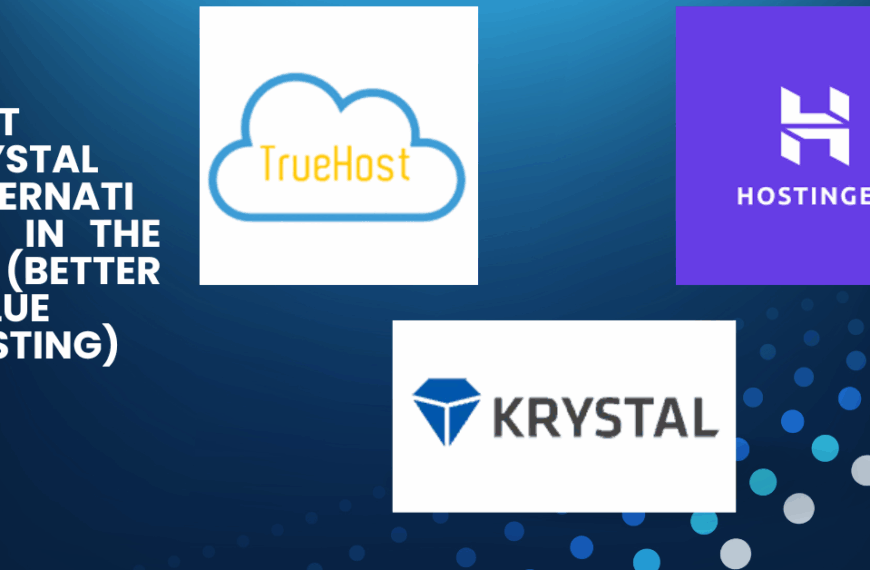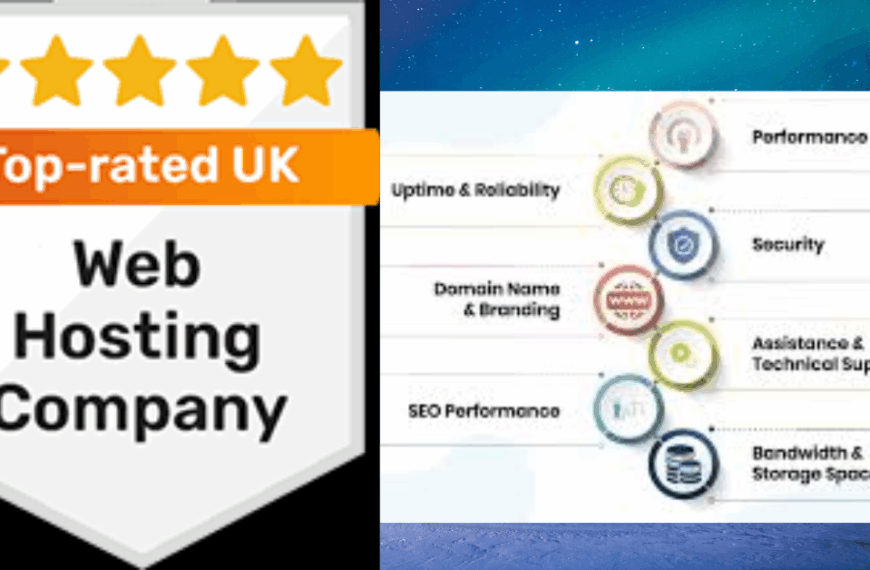Last updated on November 23rd, 2025 at 08:04 pm
Spam filtering has evolved dramatically, and UK businesses need to understand these changes. Here’s a sobering fact: 45% of all emails hitting UK inboxes are spam.
Traditional filters are failing against sophisticated threats. They’re missing phishing attempts while flagging legitimate emails as spam.
Artificial intelligence has revolutionised email protection. Modern spam filtering uses machine learning algorithms that adapt and learn from new threats in real-time.
This article explores how intelligent spam filtering transforms email security for UK businesses.

What Makes Modern Spam Filtering Intelligent?
Traditional spam filters worked like bouncers with a checklist. They’d scan emails for specific words, sender reputation scores, and predetermined patterns. If something matched their rules, boom – straight to the spam folder.
But cybercriminals got smarter. They started crafting emails that slipped past these rigid rule-based systems.
Intelligent spam filtering thinks differently. It uses artificial intelligence to understand context, analyse behaviour patterns, and recognise threats that haven’t been seen before.
Machine Learning Changes Everything
Machine learning algorithms examine thousands of email characteristics simultaneously. They look at writing patterns, image analysis, link structures, and sender behaviour.
These systems learn from every email they process. When a new phishing technique emerges, the AI adapts within hours rather than waiting for manual rule updates.
Here’s what makes AI-powered spam filtering special:
- Contextual understanding – Recognises legitimate business terminology vs suspicious language
- Behavioural analysis – Identifies unusual sending patterns from known contacts
- Image recognition – Spots malicious content hidden in attachments or embedded images
- Real-time adaptation – Updates protection based on emerging global threat intelligence
Natural Language Processing in Email Security
Natural Language Processing (NLP) helps spam filters understand human communication nuances. It recognises when an email sounds “off” – even if the grammar and spelling are perfect.
Think about those business email compromise attacks. A scammer impersonates your CEO requesting an urgent wire transfer. Traditional filters might miss this because the email looks legitimate.
Intelligent systems analyse communication patterns. They know your CEO doesn’t usually send urgent financial requests at 2 AM. They recognise subtle language differences that indicate impersonation.
Latest UK Spam Filtering Technology Advancements
The spam filtering landscape has transformed dramatically over the past two years. UK businesses are seeing remarkable improvements in email security capabilities.
1) Deep Learning Neural Networks
Deep learning takes spam filtering beyond simple pattern recognition. These neural networks analyse email content across multiple dimensions simultaneously.
They examine sender reputation, content analysis, attachment scanning, and recipient behaviour patterns. All of this happens in milliseconds before emails reach your inbox.
Recent advancements include:
| Technology | Capability | UK Implementation Rate |
|---|---|---|
| Deep Neural Networks | Advanced threat detection | 78% |
| Behavioural Analysis | Sender pattern recognition | 65% |
| Image Recognition | Malicious attachment scanning | 82% |
| Real-time Intelligence | Zero-day threat protection | 71% |
2) Integration with Cloud Email Hosting
Modern spam filtering integrates seamlessly with popular UK email hosting platforms. Whether you’re using Microsoft 365, Google Workspace, or dedicated hosting providers, intelligent protection adapts to your infrastructure.
Cloud-based filtering offers significant advantages. Updates happen automatically, threat intelligence flows globally, and you’re protected against emerging threats without manual intervention.
3) Emerging UK Threat Detection Capabilities
British businesses face unique cybersecurity challenges. Brexit has complicated international data sharing, while remote work has expanded attack surfaces.
Intelligent spam filtering addresses these concerns through:
- Advanced phishing protection targeting UK financial institutions
- Business email compromise detection protecting against CEO fraud
- Malware scanning including region-specific threats
- Compliance monitoring ensuring GDPR adherence
The National Cyber Security Centre reports that email-based attacks account for 83% of UK cyber incidents. Intelligent filtering significantly reduces this risk.
Why UK Businesses Need Advanced Email Protection
Email security isn’t just about convenience anymore. It’s about protecting your business reputation, customer data, and financial stability.
i) Compliance and Regulatory Requirements
UK businesses must comply with General Data Protection Regulation (GDPR), which carries severe penalties for data breaches. Poor email security can result in fines up to 4% of annual turnover.
Intelligent spam filtering helps maintain compliance through:
- Automatic data loss prevention
- Encrypted communication channels
- Audit trails for regulatory reporting
- Real-time threat response capabilities
ii) Financial Impact of Email Attacks
The average cost of a successful phishing attack on UK businesses is £3.2 million. This includes direct losses, recovery costs, and reputational damage.
Consider these statistics from recent UK cybersecurity reports:
- 72% of UK businesses experienced email-based attacks in 2024
- Average recovery time from email compromise: 28 days
- Customer trust restoration period: 6-18 months
- Direct financial losses: £45,000-£890,000 per incident
iii) Operational Efficiency Benefits
Intelligent spam filtering improves productivity by reducing false positives. Your team spends less time sorting through quarantined legitimate emails.
Modern systems learn your communication patterns. They understand that monthly reports from accounting are legitimate, even if they contain financial keywords that might trigger traditional filters.
Choosing the Right Intelligent Spam Filtering Solution
Not all spam filtering solutions are created equal. UK businesses need to evaluate options carefully based on their specific requirements.
Essential Features for UK Enterprises
Look for these critical capabilities when evaluating spam filtering solutions:
Accuracy Metrics:
- 99.5%+ spam detection rate
- Less than 0.1% false positive rate
- Real-time threat response under 30 seconds
- Multi-language support including Welsh and Scottish Gaelic
Integration Requirements:
- API compatibility with existing email infrastructure
- Single sign-on (SSO) integration
- Mobile device management (MDM) support
- Cloud and on-premises deployment options
UK-Specific Deployment Considerations
British businesses have unique requirements around data sovereignty and regulatory compliance. Your spam filtering solution should offer:
- UK-based data centres with local support
- 24/7 technical assistance during British business hours
- Compliance certifications including ISO 27001 and Cyber Essentials
- Brexit-compliant data handling procedures
If you’re ready to upgrade your email security infrastructure, you can pair your spam filter service with ThetrueHost.co.uk email hosting for comprehensive protection designed specifically for UK businesses.
Vendor Evaluation Framework
Use this framework to assess potential spam filtering providers:
- Technical Capabilities – AI sophistication, detection rates, integration options
- UK Presence – Local support, data residency, regulatory understanding
- Scalability – Growth accommodation, enterprise features, cost structure
- Support Quality – Response times, expertise level, escalation procedures
- Track Record – Customer testimonials, industry recognition, security certifications
Implementation Best Practices for UK Organisations
Successful spam filtering implementation requires careful planning and phased deployment. Here’s how to get it right.
Pre-Implementation Assessment
Start with a comprehensive email security audit. Analyse your current threat landscape, existing vulnerabilities, and protection gaps.
Document these critical elements:
- Current spam volumes and types
- False positive rates with existing systems
- Integration requirements with current infrastructure
- Compliance obligations specific to your industry
- Budget constraints and ROI expectations
Phased Deployment Strategy
Don’t switch everything at once. Implement intelligent spam filtering gradually to minimise disruption.
Phase 1: Pilot Programme (Weeks 1-2) Test with a small group of users. Monitor performance, gather feedback, and adjust settings.
Phase 2: Department Rollout (Weeks 3-4)
Expand to entire departments. Fine-tune rules based on different communication patterns.
Phase 3: Organisation-wide Implementation (Weeks 5-6) Complete deployment with full monitoring and support protocols active.
Optimisation and Fine-tuning
Intelligent spam filtering improves over time, but you need to guide the learning process.
Monitor these key performance indicators:
- Detection accuracy – Aim for 99.5%+ spam identification
- False positive rates – Target less than 0.1% legitimate email blocking
- Processing speed – Maintain sub-second email delivery times
- User satisfaction – Regular surveys and feedback collection
Regular calibration ensures your system adapts to your organisation’s unique communication patterns.
Future Trends in UK Email Security
Email security continues evolving rapidly. Understanding upcoming trends helps you make informed investment decisions.
Quantum-Resistant Encryption
Quantum computing threatens current encryption methods. Forward-thinking UK businesses are preparing for quantum-resistant email security.
New spam filtering systems incorporate post-quantum cryptography. They’re preparing for the day when current encryption becomes vulnerable.
AI vs AI Security Battles
Cybercriminals are using AI to create more sophisticated attacks. They’re generating convincing phishing emails that traditional detection methods miss.
The response? Even more advanced AI defence systems. It’s becoming an arms race between criminal AI and protective AI systems.
Integration with Zero Trust Architecture
Zero Trust security models are gaining popularity across UK enterprises. Email filtering is becoming a core component of these comprehensive security frameworks.
Modern systems don’t just filter spam. They verify every email interaction, authenticate senders continuously, and integrate with broader security ecosystems.
According to Gartner’s latest research, 80% of UK enterprises will adopt Zero Trust principles by 2026. Email security is a critical foundation for this transition.
Making the Switch: Your Next Steps
Intelligent spam filtering isn’t optional anymore. It’s essential infrastructure for UK businesses operating in today’s threat landscape.
Traditional filters are failing against sophisticated attacks. Your organisation needs AI-powered protection that adapts, learns, and evolves with emerging threats.
The implementation process doesn’t have to be complicated. With proper planning, phased deployment, and ongoing optimisation, you can significantly improve your email security posture.
Start by assessing your current vulnerabilities. Identify the gaps in your existing protection. Then evaluate intelligent spam filtering solutions that meet your specific UK business requirements.
Remember, email security is an investment in your organisation’s future. The cost of prevention is always less than the cost of recovery from a successful attack.
Ready to upgrade your email security? You can pair your spam filter service with ThetrueHost.co.uk email hosting, which offers UK-based support and compliance expertise. Contact our team for a free security assessment and discover how advanced AI protection can transform your email infrastructure.
The future of email security is intelligent, adaptive, and proactive. Make sure your organisation is ready.
Read Also:
 Domain Search
Domain Search Whois Lookup
Whois Lookup Domain Transfer
Domain Transfer All Domains
All Domains Web Hosting
Web Hosting Email Hosting
Email Hosting Reseller Hosting
Reseller Hosting Windows Hosting
Windows Hosting cPanel Hosting
cPanel Hosting VPS Hosting
VPS Hosting Managed VPS Hosting
Managed VPS Hosting Dedicated Server
Dedicated Server SSL Certificates
SSL Certificates All SSL
All SSL






